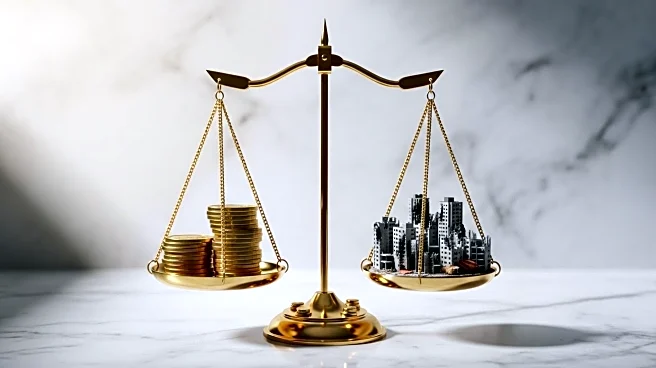What's Happening?
Russian President Vladimir Putin has announced plans to consider raising taxes on wealthy individuals to fund the ongoing war in Ukraine. He referenced historical precedents set by the United States during the Vietnam and Korean Wars, where taxes were increased on high-income earners to support war efforts. This move is part of Russia's strategy to secure additional financial resources for its military operations in Ukraine, as the conflict continues to strain the country's economy.
Why It's Important?
The decision to potentially increase taxes on the rich in Russia could have significant implications for the country's economy and its wealthy citizens. It reflects the financial pressures faced by Russia due to the prolonged conflict in Ukraine and the need to sustain military operations. This strategy may lead to increased scrutiny and debate over the economic policies and priorities of the Russian government. Additionally, the reference to U.S. historical precedents highlights the global impact of war on economic policies and the challenges of balancing military needs with economic stability.
What's Next?
If implemented, the tax increase could lead to changes in Russia's economic landscape, affecting investment and spending patterns among wealthy individuals. The move may also prompt discussions within Russia and internationally about the effectiveness and fairness of using tax policies to fund military operations. As the situation in Ukraine evolves, Russia's economic strategies and their impact on domestic and international stakeholders will be closely monitored.
Beyond the Headlines
The consideration of higher taxes on the rich to fund the Ukraine war raises ethical questions about the role of wealth in supporting military efforts. It also highlights the broader implications of war on economic policies and the potential for increased inequality and social tensions. The decision may influence global perceptions of Russia's economic strategies and its approach to addressing the financial challenges posed by the conflict.









